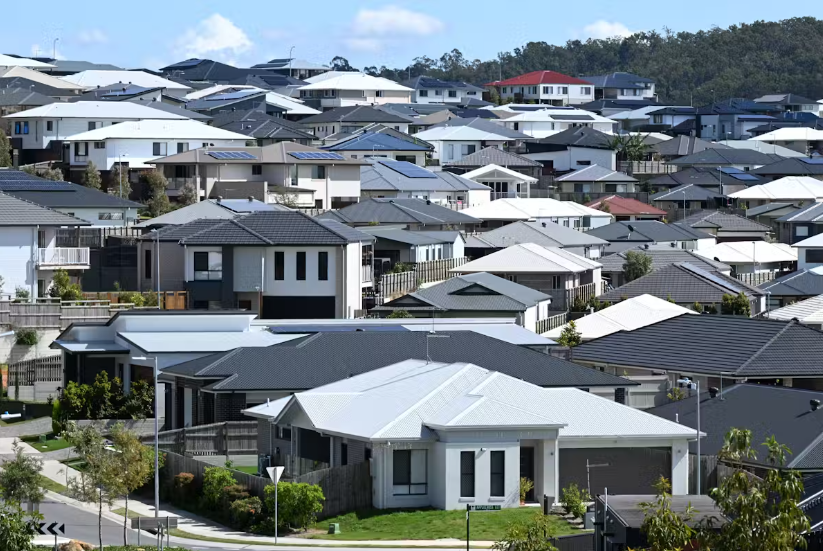
By Dan Woodman*
Securing the welfare of future generations seems like solid grounds for judging policies and politicians, especially during an election campaign. Political legacies are on the line because the stakes are so high.
There is a real possibility that today’s young people could become the first Australian generation to suffer lower living standards on some key measures than their parents. Unaffordable housing is the main flashpoint. But other challenges weigh heavily, including student debt, insecure work and climate change.
No political leader would want to preside over a society that leaves younger generations worse off than those that preceded them. Yet that possibility should be on voters’ minds as they prepare to pass judgement at the ballot box on May 3.
Young voters wield power
In recent elections, young people have been largely overlooked. Yet, for the first time I can remember, all the major political parties have explicitly recognised that many young people are doing it tough.
Political strategists would be mindful demographics are clearly shifting. This will be the first election where Gen Z and Millennials will outnumber Baby Boomers (and Gen X) at the ballot box.
The good and the bad
But intergenerational equality can be hard to pin down, as people disagree on what counts and how to count it. On many measures of living standards, young Australians are demonstrably better off than their parents.
Many of the nice things in life, such as international travel and electronic gadgets, are much cheaper. The future may be uncertain, but unless we decide to live more sustainably as a society, today’s young people are still on track to consume more over the course of their lifetime than previous generations.
However, the things that really matter, including housing and education, cost more than ever before. And that means crucial life transitions to secure and happy adult lives are taking longer and feel less certain.
Our policy settings might be making this worse. Many experts argue the tax system is stacked against the young because it favours people who have already built up wealth and assets.
Education is becoming more expensive, while converting educational credentials into employment outcomes is harder than it was. And getting together the deposit for a house is onerous, as costs increase faster than people can save.
Policy pitch
In this election, a swag of policy offerings to young voters has already been made.
Labor is promising to cut student HECS debts and make housing more affordable. The Coalition will allow young home buyers to dip into their superannuation to purchase their first property, while the Greens want to cap rent increases.

So, who is likely to win the young vote? In recent decades younger Australian voters have shifted towards the left. Unlike in some similar countries, this has also included young men, although at a slower pace than women.
However, young voters are a diverse lot. United States President Donald Trump’s success at harvesting a greater share of the American youth vote, in part through tapping into cost-of-living concerns, suggests younger voters should not be taken for granted in Australia.
What’s missing from the debate
The elephant in the room in any conversation about inequality between the generations is the growing role intergenerational financial supports play in shaping young people’s lives. These transfers help reproduce, and even sharpen, economic inequalities between young people.
As part of the Life Patterns Project, I have spent the past 20 years with colleagues tracking young people as they transition from secondary school to early adulthood.
One of our recent findings is that parents are increasingly supporting their young adult children through crucial life events. This includes helping with bills, rent, and often a deposit for a house.
And this has consequences for inequality over time. The ability to fall back on family resources is playing an even greater role in determining how easily a young person will navigate school and university, land a decent job and buy into the housing market.
This is in turn increases the pressure on parents to continue supporting their children well into their adult years. The financial squeeze is being felt particularly sharply by those who can’t really afford to help, at least without changing their own plans for the future, including their retirement.
No appetite for real reform
So these intergenerational challenges are not just affecting young people. They also have an impact on parents, some of whom are risking their own financial security to help their adult children. They also risk making Australia a less equal society.
Recently, Anglicare advocated an inheritance tax to reduce the role intergenerational transfers play in shaping unequal outcomes for future generations.
But the major political parties are in no hurry to embrace such a measure. Nor any other significant reforms to the tax treatment of housing to try and improve affordability.
Nevertheless, at this election, younger generations are on the agenda in a new way. Politicians will ignore them at their peril.
This is the fifth article in our special series, Australia’s Policy Challenges. You care read the other articles here![]()
*Dan Woodman, TR Ashworth Professor in Sociology, The University of Melbourne.
This article is republished from The Conversation under a Creative Commons license. Read the original article.
We welcome your comments below. If you are not already registered, please register to comment
Remember we welcome robust, respectful and insightful debate. We don't welcome abusive or defamatory comments and will de-register those repeatedly making such comments. Our current comment policy is here.